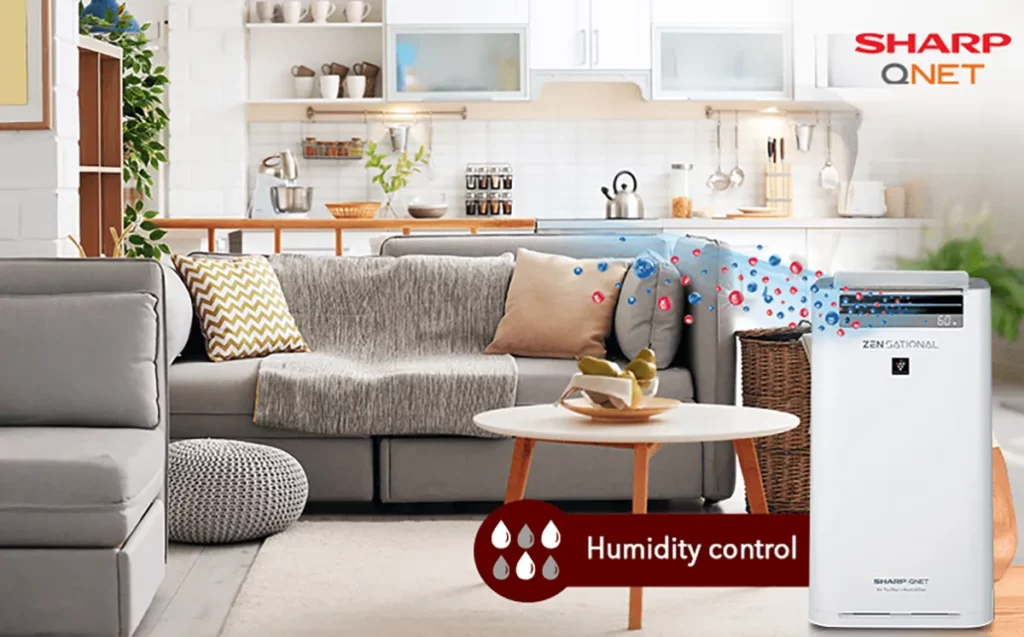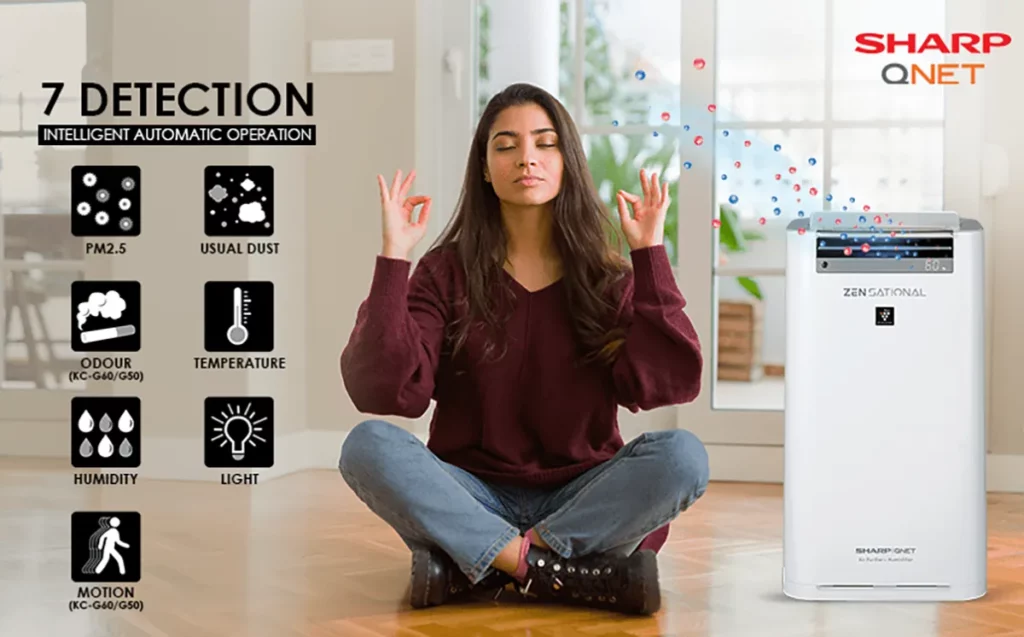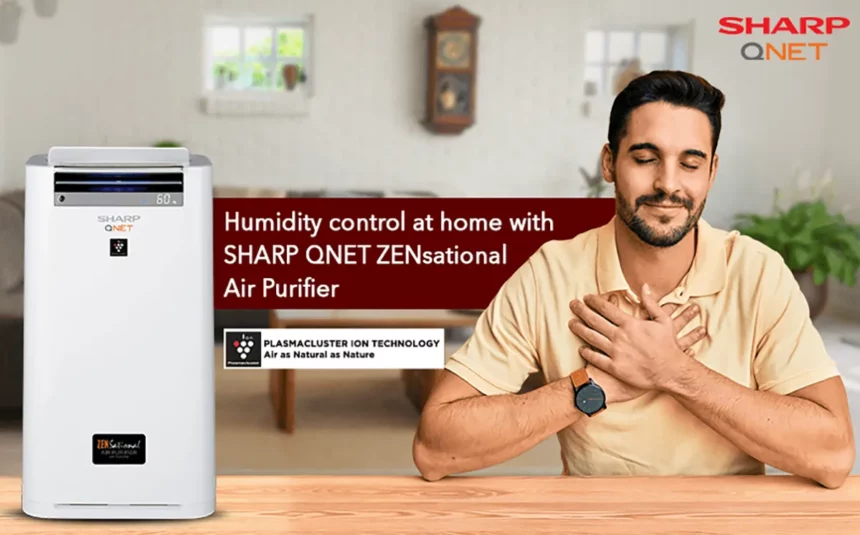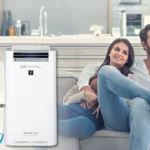Humidity control is the regulation of humidity in an indoor setting. When we think about humidity control at home, we tend to pass it off as a minor detail. It might seem irrelevant to our living conditions. However, what if it wasn’t the case?
On the contrary, it has huge implications for our overall health. According to studies, when the humidity levels are too low, our body tends to dehydrate. In turn, this leads to chronic skin and throat irritation. Further, causing harmful and undesired health problems.
Under such circumstances, humidity control is extremely important to ensure safety and prevent unprecedented conditions. Let’s understand what happens when humidity is not managed in an indoor setting.
Why is humidity control at home important? What happens if it is too low?
Humidity is the amount of moisture in the air. The ideal range of humidity at home is between 30-60%. When the humidity is too low, our body tends to lose moisture by releasing water through skin pores and respiration.
Due to this, we experience dry skin, dry throat, chapped lips and itchiness around the nasal area. As we rub the area more, it leads to inflammation and excessive dryness.

Now, dryness and itchy skin might not seem perilous. However, the mucus membranes in our nasal cavity, which acts as the first layer of defence against pathogens, aren’t as effective. The reason is because the membranes are dry due to low humidity. Furthermore, when the nasal region is dry and split, the microbes easily pass through the membrane into the bloodstream.
The most important challenge arises when harmful microbes remain longer in the air. According to studies, harmful pathogens linger longer in the air when they lose excess water vapour. In turn, they become lighter and airborne.
It makes us more vulnerable to harmful viruses, including the Coronavirus. It has affected people across the globe in recent times, causing respiratory ailments and further affecting their immune systems.
However, it all starts with low humidity levels and a need for improving indoor air quality. It is indeed a serious problem. This calls for an effective measure for improving indoor air quality through humidity control.
With an integrated humidifier, the SHARP QNET Zensational air purifier is one of the best solutions for humidity control and reducing indoor air pollution.
SHARP QNET Zensational air purifier for humidity control and improving indoor air quality

SHARP QNET Zensational is an advanced air purifier that uses the patented Plasmacluster Ion technology for eliminating 91.3% of Coronavirus and 29 different kinds of pathogens, including H1N1, MRSA and E. coli.
The air purifier contains an effective PANDAA filter that neutralises harmful VOCs and haze substances. Furthermore, it removes household toxins and effectively deodorises the home.
One of the most important benefits of the Zensational air purifier is its ability to control humidity and indoor air quality. An integrated humidifier controls relative humidity through a natural evaporation technique.
Air conditioners at home generally tend to reduce humidity levels. Due to low humidity, we tend to experience dryness and lethargy. In addition, low humidity levels in an indoor setting increases airborne viruses and bacteria. However, the humidifier in Zensational restores the humidity to an optimum level within a few minutes. Ensuring safe and stress-free breathing.
So, here are few more benefits that make SHARP QNET Zensational an ideal air purifier for your home.
Benefits of SHARP QNET Zensational air purifier

Zensational has a wide range of features to ensure the best indoor air quality for your home.
The H14 Grade True HEPA filter has an efficiency of 99.97% for trapping a host of dust, allergens, gases and inorganic substances up to 0.3 microns. This advanced filter also removes harmful mold and mildew from the air.
Furthermore, due to charges generated inside the HEPA, particles are trapped in corners, thus not clogging the air path and maintaining efficiency. The best part is that it has a long filter life of 10 years.
The SHARP QNET Zensational is further equipped with the 7-Detection intelligent modes. With a single button, this feature allows you to control various room conditions, including dust, pm 2.5 particles, odour, and humidity. This amazing feature is complemented by a wide coverage area of approx. 540 sq. feet to ensure that it reaches every nook and cranny.
Finally, the Zensational air purifier has certifications from multiple global labs to prove its effectiveness. It is indeed a unique air purifier that ensures the health and wellness of your family.
SHARP QNET Zensational air purifier ensures the best indoor air quality at your home
Due to the pandemic, we tend to spend most of our time at home. With most of us working from our homes, it is important to ensure that the air quality is pure and safe. It all starts with taking a step towards ensuring safe humidity levels at home and reducing other harmful substances.
An air purifier can certainly improve the quality of air at your home. However, a world-class air purifier like Zensational ensures the overall well-being of your family. It has multiple benefits that include the speciality of an integrated humidifier to turn your home into a haven of purity.
So, experience the bliss of pure air. Bring home the SHARP QNET Zensational air purifier!
Available right now on the QNET India eStore.








